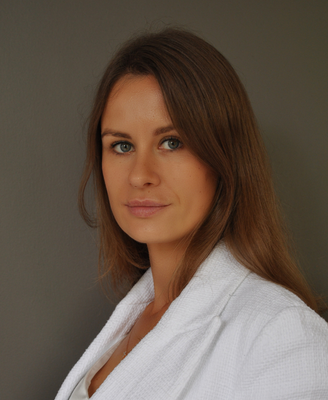
Director of the study programme:
Mg.soc. Julija Mironova
Mg.soc. Julija Mironova
Duration of studies:
Full-time intramural - 4 years, Part-time extramural – 4,5 years
Awarded degree:
Professional Bachelor’s Degree in Business Administration in Tourism
Qualification:
Business Administrator
Languages:
Latvian | English
Programme description
To prepare competent, socially responsible, and open to self-improvement company managers in the field of tourism, who are able to establish and manage new, innovative and competitive companies in the global
tourism market or to occupy leading positions in existing companies both in the Latvian market and abroad.
Objectives of the study programme:
1. To provide competitive higher professional education corresponding to the fifth level professional qualification and the 6th European Qualifications Framework (EQF) level in business administration in tourism and to train tourism professionals with high performance potential both in the Latvian and global labour market
2. To provide students with comprehensive knowledge, understanding and practical skills of the regularities of modern economic development, the linking of innovations with entrepreneurship in tourism and related economics,
state and public administration and other business related processes.
3. To develop students' scientific research skills, analytical thinking skills, innovative thinking skills and creativity, communication skills that would allow graduates to
become creative personalities, successfully integrate into the Latvian and global labour market
4. To promote the development of tourism business education and research in Latvia, while strengthening the international competitiveness of Latvian higher education
Traineeship
Each student has an opportunity of paid traineeship at famous European resorts (in Spain, Greece, Bulgaria and in other countries), as well as to study during 1 or 2 semesters in foreign partner-universities of ISMA in the framework of student mobility programmes. ISMA also offers traineeship placement at tourism and hospitality enterprises in Latvia. Many ISMA students start professional career while studying.
ISMA graduate who has mastered Professional Bachelor’s degree study programme “Business Administration in Tourism” is able to:
-
Analyse and assess the international and domestic economic environment, and the tendencies of tourism market development, competitive situation and possible actions of competitors;
-
Evaluate the factors of external and internal environment and their impact on entrepreneurial activity, to identify the opportunities of tourism business development locally and internationally;
-
Formulate the mission and vision of an enterprise, to work out its development strategy and to define strategic, tactical and operational goals;
-
Analyse and assess the indicators of the economic activity of an enterprise, to plan its operations, to adjust and improve plans in the dynamic economic environment in compliance with the set objectives and market situation;
-
Manage a multicultural team, communicating with the employees of the enterprise on the achievement of goals and problem solving;
-
Organise rational and coordinated work of the structural divisions of the enterprise, motivate employees, supervise the performance of duties by subordinate staff;
-
Manage and monitor the spheres of functioning of an enterprise: marketing, organisation of services, personnel, finance and information systems management, logistics, etc.;
-
Analyse and assess the operations of an enterprise and the achieved results, to follow the progress of goals, to ensure the achievement of these goals, to make decisions and changes aimed at the optimisation of operational and strategic activities;
-
Identify commercial and financial risks, analyse them and implement measures to prevent the negative impact of risks;
-
Represent the enterprise in transactions with other enterprises, organisations and institutions, including public and state institutions;
-
Ensure the compliance of the enterprise operations with the requirements of the normative acts of international legislation and the legislation of the Republic of Latvia.
